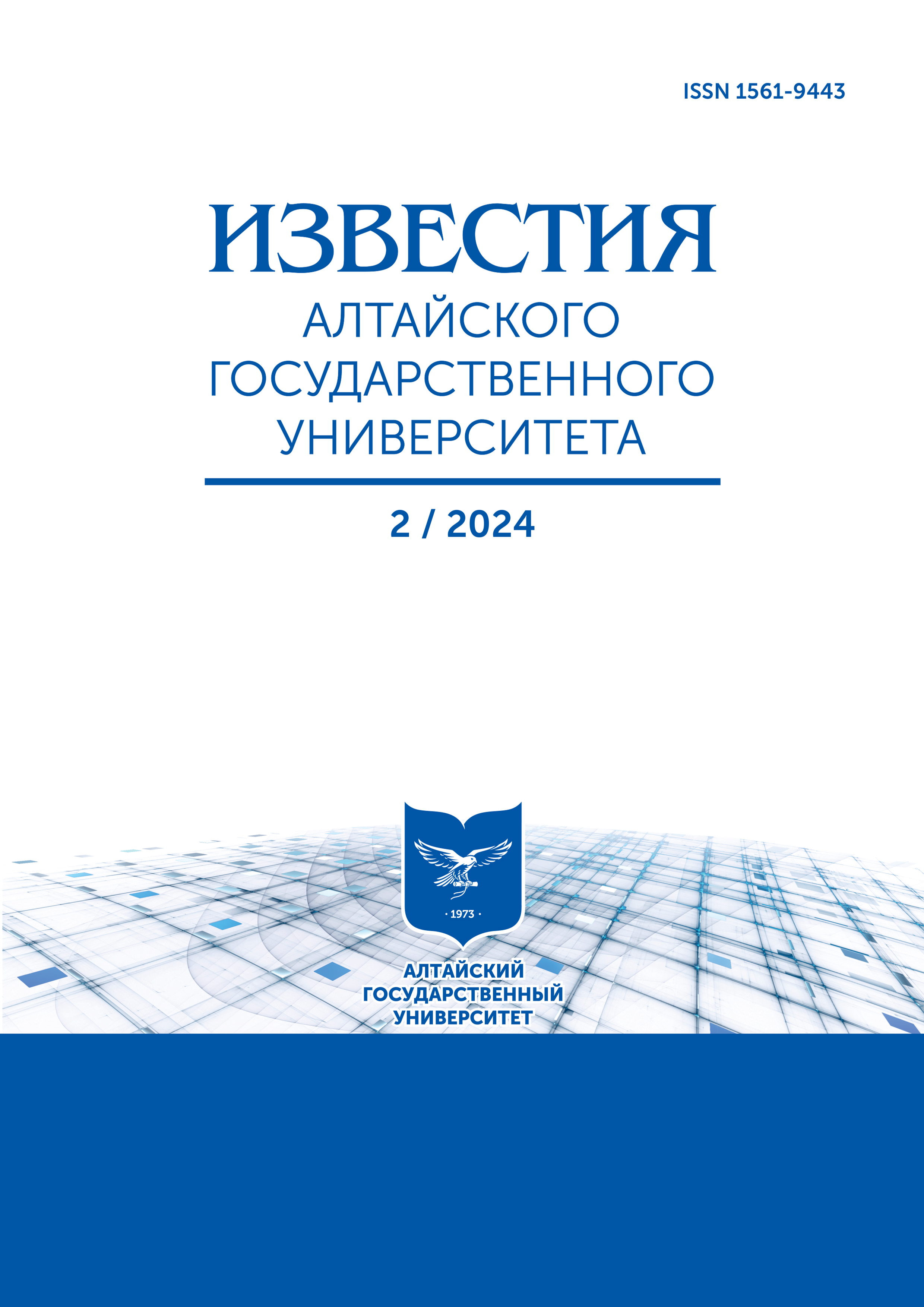The Formation of the Norwegian National Identity during the Danish-Norwegian Union (1536-1814)
УДК 94 ББК 63.3(0)
Abstract
The article examines various approaches to the issue of the formation of national identity in Norway. It is noted that the complex path of identity formation can hardly be described using any one-sided approach. In different periods, different factors came to the fore. Using the example of the development of this country, which in the period 1536-1814. was in political, socioeconomic and cultural dependence on Denmark, the prerequisites for the genesis of national identity were identified. The factor of the dominant state over the unassimilated community of Norwegians, who had their own interests, played a dominant role. By the end of the 18th - beginning of the 19th centuries. Norway no longer received benefits from the joint union. At this time, national identity was gradually formed, differentiation from the Danes took place, although, as a rule, this did not take the form of acute political confrontation. For the complete formation of national identity, it was necessary to create one’s own sovereign state and adopt a constitution, which happened in 1814.
Downloads
Metrics
References
Anderson B. Imagined Communities: Reflections on the Origin and Spread of Nationalism, London: Verso, 2006. 240 p.
Смит Э.Д. Национализм и модернизм: Критический обзор современных теорий наций и национализма. М. : Праксис, 2004. 464 с.
Нехаев А.В. Теории наций и национализмов: проблема классификации // Омский научный вестник. Серия: Общество. История. Современность. 2016. № 2. С. 36-46.
Тилли Ч. Принуждение, капитал и европейские государства. 990-1992 гг. М. : Территория будущего, 2009. 328 с.
Индекс человеческого развития, скорректированный с учетом планетарной нагрузки // Доклад ООН о человеческом развитии за 2021-2022 гг. Времена неопределенности, неустроенные жизни: наше будущее в меняющемся мире. Нью Йорк: Программа Развития ООН, 2022.
Quality of Life Index by Country 2024 // Numbeo. [website]. URL: https://www.numbeo.com/quality-of-life/ran-kings_by_country.jsp (accessed: 14.02.24).
Галумов Э.А. Имидж против имиджа. М. : Известия, 2005. 552 с.
Торопова Е.А. Национальная идентичность как компонент имиджа страны // Вестник Московского университета. Серия 10: Журналистика. 2010. № 4. С. 219-229.
Мартыненко В.О. Составляющие региональной культуры Норвегии в формировании современного имиджа страны // Дневник Алтайской школы политических исследований. № 39. Современная Россия и мир: альтернативы развития (Историко-культурное наследие и формирование имиджа региона) : сборник научных статей / под ред. Ю.Г. Чернышова. Барнаул : Изд-во Алт. ун-та, 2023. С. 122-132.
Медова Ю.А. О соотношении этнической и национальной идентичности // Философия и общество, 2010. №. 4. С. 119-125.
Кочетков В.В. Национальная и этническая идентичность в современном мире // Вестник Московского университета. Серия 18: Социология и политология. 2012. № 2. С. 14-4162.
Идентичность: Личность, общество, политика. Энциклопедическое издание / отв. ред. И.С. Семененко ; ИМЭМО РАН. М. : Весь Мир, 2017. 992 с.
Neumann I.B. Russia and the Idea of Europe: A Study in Identity and International Relations. London and New York: Routledge, 1996. 272 p.
Thorkildsen D. Norwegian National Myths and Nation Building // Kirchliche Zeitgeschichte, 2014. Vol. 27. № 2. P. 263-276.
Bagge S. Nationalism in Norway in the Middle Ages // Scandinavian Journal of History, 2008. Vol. 20. № 1. P 1-18.
История Норвегии. От викингов до наших дней / сост.: Р Даниельсен, С. Дюрвик, Т. Грентли, К. Хелле, Э. Ховланн. М. : Весь мир, 2003. 528 с.
Ристе У. История внешней политики Норвегии. М. : Весь мир, 2003. 416 с. 18. Weiding T.R. Norge Under Dansk Styre (1537-1814) // Store Norske Leksikon [website]. URL: https://snl.no/Norge_ under_dansk_styre_-_1537-1814 (accessed: 10.02.2024).
Кан А.С. История Норвегии. М. : Наука, 1980. 715 с.
Договор об унии Дании, Швеции и Норвегии / пер. А.Ю. Кузиной, А.Д. Щеглова // Средние века. 2003. № 64. С. 271-293.
История Европы. Т. 2: Средневековая Европа / под ред. З.В. Удальцовой. М. : Наука, 1992. 808 с.
Kongeloven, 14. november 1665 // Danmarkshistorien. dk. [website]. URL: https://danmarkshistorien.dk/vis/mate-riale/kongeloven-1665/ (accessed: 10.02.2024).
Burgess J.P., Hyvik J.J. Ambivalent Patriotism: Jacob All and Dano-Norwegian Identity before 1814 // Nations and Nationalism, Vol. 10. № 4. P. 619-637.
Haugan J. Norwegian Linguistic Identity through History - from National Identity to Linguistic Individualism // Educational Role of Language Journal, 2021. № 4. P 42-55.
Sars J.E. Samlede Vsrker. Andet bind. Udsigt Over Den Norske Historie 3-4. Kristiania: Gyldendalske Boghandel Nordisk Forlag, 1912. 665 s.
Historisk Statistikk. Oslo: Statistisk Sentralbyra, 1968. 632 s.
Schøning G. Norges Riiges Historie. Ki0benhavn: Bekostet af H. Mumme og Faber, 1771. 567 s.
Copyright (c) 2024 Владислав Олегович Мартыненко, Юрий Георгиевич Чернышов

This work is licensed under a Creative Commons Attribution 4.0 International License.
Izvestiya of Altai State University is a golden publisher, as we allow self-archiving, but most importantly we are fully transparent about your rights.
Authors may present and discuss their findings ahead of publication: at biological or scientific conferences, on preprint servers, in public databases, and in blogs, wikis, tweets, and other informal communication channels.
Izvestiya of Altai State University allows authors to deposit manuscripts (currently under review or those for intended submission to Izvestiya of Altai State University) in non-commercial, pre-print servers such as ArXiv.
Authors who publish with this journal agree to the following terms:
- Authors retain copyright and grant the journal right of first publication with the work simultaneously licensed under a Creative Commons Attribution License (CC BY 4.0) that allows others to share the work with an acknowledgement of the work's authorship and initial publication in this journal.
- Authors are able to enter into separate, additional contractual arrangements for the non-exclusive distribution of the journal's published version of the work (e.g., post it to an institutional repository or publish it in a book), with an acknowledgement of its initial publication in this journal.
- Authors are permitted and encouraged to post their work online (e.g., in institutional repositories or on their website) prior to and during the submission process, as it can lead to productive exchanges, as well as earlier and greater citation of published work (See The Effect of Open Access).








